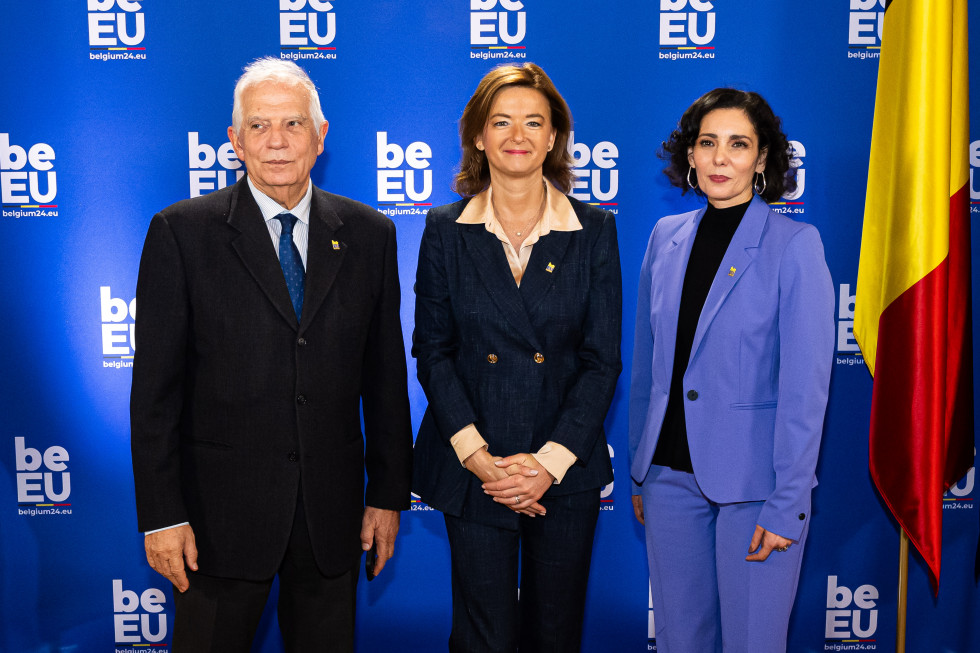Minister Fajon: "Slovenia will continue humanitarian aid to civilians in Gaza"

EU High Representative for Foreign and Security Policy Josep Borrell, Minister of Foreign and European Affairs Tanja Fajon and Belgian Foreign Minister Hadja Lahbib | Author EU
"The main message I would like to convey today is that Slovenia will continue to provide humanitarian aid to the civilian population in Gaza. The nearly 30,000 UNRWA (United Nations Relief and Works Agency) workers who distribute food to Palestinians every day should not stop delivering aid, as the situation is already dire. I reiterated my call for a ceasefire, the release of hostages and the imposition of sanctions against violent Israeli settlers in the West Bank. This is a terrible human tragedy. Only a ceasefire will ensure an uninterrupted delivery of humanitarian aid and allow the start of serious talks on the two-state solution," Minister Fajon said in the debate.
The ministers agreed that a strong partnership with Africa is key to addressing the common challenges we all face globally. The EU and African countries are important partners, not only because of their geographical proximity but also because of their common interests in the security and the well-being of their people. Peace and stability in Africa, which is struggling with poverty, climate change, conflict and terrorism, is also important for Europe. Closer cooperation is therefore essential. We are well aware of this, not least because African countries have shown great confidence in Slovenia by voting for its non-permanent membership of the UN Security Council. At the bilateral level, Slovenia continues to strengthen its relations with African countries, as evidenced by the opening of an embassy in Ethiopia, while at the multilateral level, Slovenia has long advocated the adaptation of the international system, including the United Nations and the international financial architecture, to better address Africa's challenges," the Minister stressed during the debate on EU-Africa relations.
The EU ministers also discussed further support for Ukraine. "I welcome Thursday's EU summit agreement to extend €50 billion in aid to Ukraine. As Russia's aggression enters its third year, it is vital to continue to support Ukraine through the European Peace Facility and in the area of reform. Slovenia will continue to work for broader international support for Zelensky’s peace formula, including in the Security Council," Minister Fajon said.
The afternoon session focused on EU-Türkiye relations. "Türkiye is an important strategic partner for the EU, especially in terms of economic and security cooperation," she said, adding that she is also planning to visit Türkiye with a strong business delegation. The ministers agreed that regular dialogue with Türkiye is crucial in an increasingly tense geopolitical situation.
Today's informal meeting of EU foreign ministers, known as the Gymnich, was also marked by celebrations. The Belgian Presidency celebrated the 50th anniversary of the Gymnich informal meetings of foreign ministers, named after the German castle of Gymnich where the first meeting took place in 1974, with a symbolic cake.

